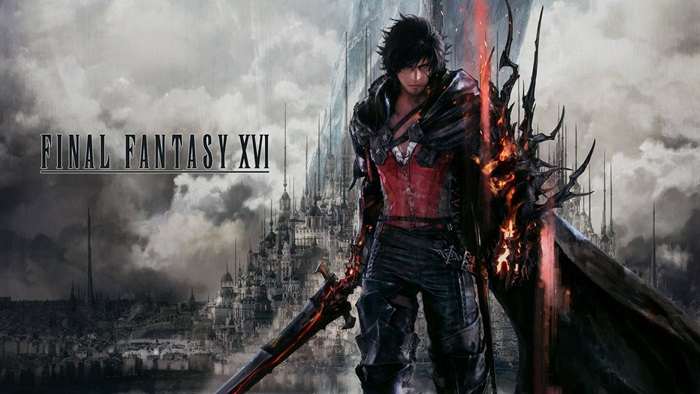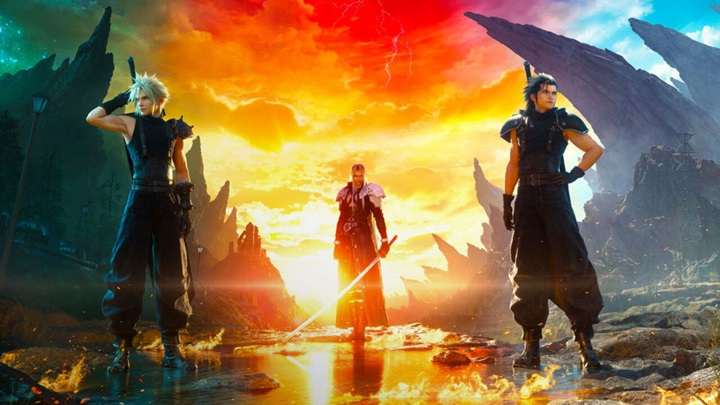The Final Fantasy series is one of the most beloved and enduring franchises in the world of video games. Known for its captivating storytelling, innovative gameplay, and unforgettable characters, each installment has carved its own niche within the gaming community. With so many titles to choose from, it can be daunting to determine which games reign supreme. In this article, we’ll explore the mainline entries of the Final Fantasy series, ranking them from least to most revered, while also examining what makes each game special.
The Legacy of Final Fantasy

Before diving into the rankings, it’s important to understand the impact of Final Fantasy on the gaming industry. The franchise began in 1987 with the release of the first game on the Nintendo Entertainment System (NES). It was initially intended to be the last game produced by Square (now Square Enix), but its success led to a series that has now spanned over three decades and numerous spin-offs.
Hallmarks of the Series
- Innovative Gameplay: Each game introduces new mechanics, from turn-based combat to real-time action, ensuring a fresh experience.
- Rich Storytelling: Themes of love, sacrifice, and heroism permeate the narratives, often accompanied by emotional character arcs.
- Memorable Characters: Iconic figures like Cloud Strife, Tifa Lockhart, and Sephiroth have become synonymous with the franchise.
Now, let’s delve into the rankings!
15. Final Fantasy II (1988)
Overview
Final Fantasy II is often overshadowed by its predecessor and the entries that followed. It introduced a unique leveling system that differs from traditional experience points, where players improve their abilities through use rather than grinding.
Highlights
- Innovative Mechanics: The skill-based leveling was revolutionary but often frustrating for players.
- Character Development: The game featured a deeper narrative with a focus on character relationships.
Why It Ranks Low
Despite its ambition, the mechanics were not well-received, and the story felt disjointed. It laid the groundwork for future titles but doesn’t hold up against the best of the series.
14. Final Fantasy XIII (2009)
Overview
Final Fantasy XIII was a significant departure from previous games, featuring a linear design and a real-time combat system known as the Paradigm System. While it aimed to streamline gameplay, it divided fans.
Highlights
- Stunning Graphics: The game boasted some of the most beautiful visuals of its time.
- Engaging Combat: The Paradigm System allowed for dynamic strategy in battles.
Why It Ranks Low
Many players criticized its linearity and a convoluted story, making it hard to connect with the characters and world.
13. Final Fantasy III (1990)
Overview
Final Fantasy III introduced the job system, allowing players to change character classes and abilities. This innovation added depth to gameplay and customization.
Highlights
- Job System: Players could mix and match classes, leading to varied strategies.
- Expanded World: The game had a more extensive world map and numerous side quests.
Why It Ranks Low
While it was a step forward, it didn’t have the same emotional impact or memorable characters as later entries.
12. Final Fantasy IX (2000)
Overview
Returning to its fantasy roots, Final Fantasy IX featured a charming art style and whimsical characters. The story follows Zidane and his friends as they embark on an epic adventure.
Highlights
- Nostalgic Design: The game harkens back to classic fantasy tropes with a light-hearted tone.
- Rich Characterization: The characters, especially Vivi and Steiner, are memorable and well-developed.
Why It Ranks Low
Despite its charm, some players felt it lacked the dramatic weight found in other titles, which can make it less impactful.
11. Final Fantasy XII (2006)
Overview
Final Fantasy XII introduced a new battle system that combined real-time action with strategic planning. Set in the world of Ivalice, it presented a politically charged narrative.
Highlights
- Open World Design: Players could explore vast areas and engage in quests at their own pace.
- Intricate Plot: The story was complex, delving into themes of war and loyalty.
Why It Ranks Low
While innovative, the departure from traditional turn-based combat alienated some fans. The story’s pacing also suffered in parts.
10. Final Fantasy X (2001)
Overview
Final Fantasy X was the first in the series to feature voice acting and fully 3D environments. It follows Tidus and Yuna on their quest to defeat the monstrous Sin.
Highlights
- Emotional Story: The relationship between Tidus and Yuna resonates deeply with players.
- Memorable Music: The soundtrack, especially “To Zanarkand,” is iconic.
Why It Ranks Mid-Tier
While groundbreaking, some felt the combat system lacked the depth of other entries, limiting strategic options.
9. Final Fantasy V (1992)
Overview
Final Fantasy V is known for its job system, which allowed players to mix abilities from different classes. This flexibility encouraged creativity in building character parties.
Highlights
- Customizable Gameplay: The job system provided numerous possibilities for party configurations.
- Fun Characters: The light-hearted story and quirky characters made for an enjoyable experience.
Why It Ranks Mid-Tier
While innovative, it doesn’t have the same emotional weight or memorable narrative as some higher-ranked titles.
8. Final Fantasy VII Remake (2020)
Overview
The Final Fantasy VII Remake reimagines the classic 1997 game, expanding the story and enhancing gameplay with modern mechanics. It revisits Midgar, offering a fresh take on a beloved tale.
Highlights
- Stunning Visuals: The graphics and design are breathtaking, bringing Midgar to life.
- Expanded Narrative: Characters receive more depth, and the plot is enriched with new content.
Why It Ranks Mid-Tier
While the remake successfully modernizes the classic, it only covers a portion of the original story, leaving fans wanting more.
7. Final Fantasy VI (1994)
Overview
Final Fantasy VI is often celebrated for its deep characters and intricate story. Set in a world where magic is dying, it follows a diverse cast in a rebellion against an oppressive empire.
Highlights
- Character Diversity: The large cast each has unique backstories and motivations.
- Emotional Themes: The story tackles heavy themes, including loss and redemption.
Why It Ranks Mid-Tier
Though highly regarded, some players find its pacing uneven, especially during the latter half.
6. Final Fantasy XIV (2010, 2021)
Overview
Initially launched as a failed title, Final Fantasy XIV was reborn as Final Fantasy XIV: A Realm Reborn. This MMORPG has garnered a massive player base, praised for its storytelling and community.
Highlights
- Engaging Storylines: The game features rich narratives that rival single-player entries.
- Community Focus: Players can engage with each other in meaningful ways, fostering friendships.
Why It Ranks High
While it excels in many areas, its nature as an MMORPG may not appeal to all fans of the franchise.
5. Final Fantasy I (1987)
Overview
As the inaugural title of the series, Final Fantasy I laid the foundation for future games. It introduced classic RPG mechanics and a simple yet engaging story.
Highlights
- Nostalgic Value: The simplicity and charm resonate with long-time fans.
- Introduction of Key Concepts: It set the stage for future titles with its job system and turn-based combat.
Why It Ranks High
Its historical significance is undeniable, but the gameplay feels dated compared to modern standards.
4. Final Fantasy X-2 (2003)
Overview
A direct sequel to Final Fantasy X, X-2 offers a more upbeat tone and focuses on Yuna and her friends as they search for Tidus. The game introduced the Dressphere system, adding unique combat options.
Highlights
- Dynamic Gameplay: The Dressphere system allows for rapid class changes in battle.
- Strong Female Characters: The game emphasizes character development for its female leads.
Why It Ranks High
Though divisive among fans, its gameplay and character focus earned it a place in many players’ hearts.
3. Final Fantasy IV (1991)
Overview
Final Fantasy IV is praised for its deep narrative and character-driven plot. It follows Cecil, a dark knight seeking redemption, as he battles to save his world.
Highlights
- Memorable Characters: The cast features complex relationships and character arcs.
- Engaging Story: The themes of love, sacrifice, and redemption are masterfully woven.
Why It Ranks High
It remains a fan favorite due to its balance of gameplay and story, making it a classic.
2. Final Fantasy VII (1997)
Overview
Final Fantasy VII is arguably the most iconic entry in the series. It follows Cloud Strife and his allies as they battle the Shinra Corporation and the enigmatic Sephiroth.
Highlights
- Cultural Impact: The game popularized JRPGs in the West and introduced 3D graphics.
- Complex Narrative: Its themes of environmentalism and identity resonate deeply.
Why It Ranks High
While it has its flaws, such as outdated mechanics, its emotional storytelling and character development have cemented its legacy.
1. Final Fantasy XV (2016)
Overview
Final Fantasy XV takes a bold step with an open-world design and real-time combat. It tells the story of Noctis and his friends on a road trip to reclaim his throne.
Highlights
- Breathtaking Open World: The world of Eos is vast and visually stunning, inviting exploration.
- Real-Time Combat: The combat system is fluid and engaging, allowing for dynamic battles.
Why It Ranks High
Despite its mixed reception at launch, the emotional journey of friendship and sacrifice, combined with its immersive world, makes it a standout title.
Related Post:
Exploring “Run 3 Unblocked Games”: A Cosmic Adventure
The Ultimate Guide to Tomb Raider Games in Order: A Journey Through Lara Croft’s Legacy
The Cast of Love Island Games: Meet the Vibrant Personalities Behind the Show
The Final Fantasy series has given players countless memorable experiences, each game adding to the rich tapestry of its legacy. From the pixelated charm of the original to the breathtaking visuals of modern entries, there’s something for everyone. While opinions on the rankings may vary, the passion for this franchise is undeniable.
As we continue to look forward to future installments, one thing remains clear: the journey through Final Fantasy is as timeless as the stories it tells. Whether you’re a long-time fan or new to the series, each title offers a unique adventure worth exploring.


